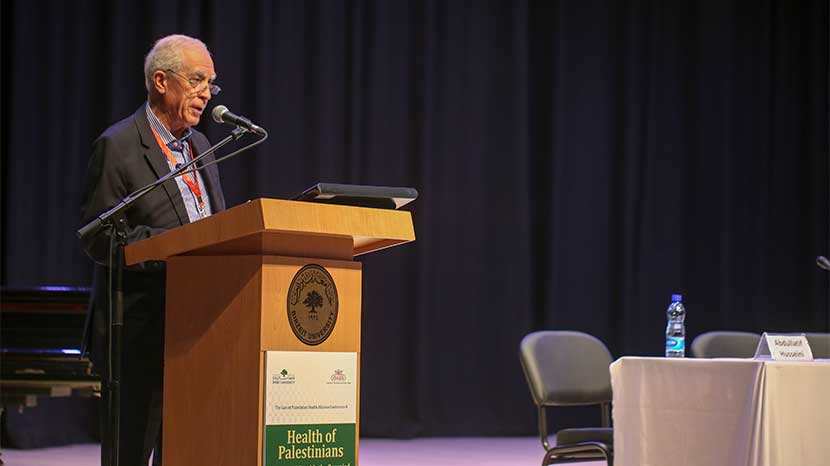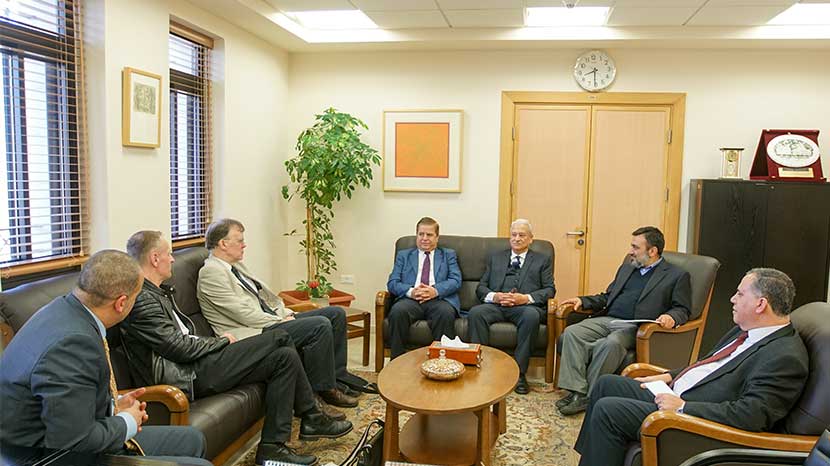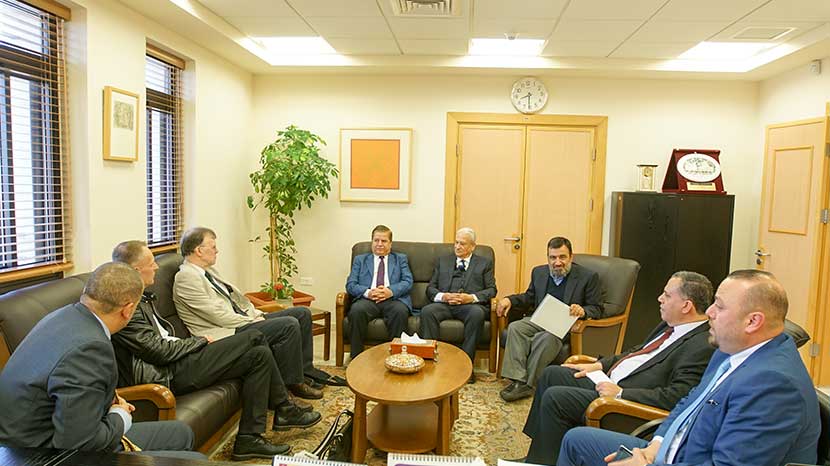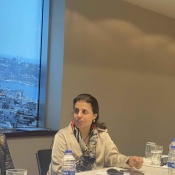8th Lancet Alliance Conference suggests enhanced health policies
The eighth annual Lancet Palestinian Health Alliance (LPHA) conference focusing on the health of Palestinians inside and outside Palestine was convened March 15, 2017 at Birzeit University. The conference was organized by the university’s Institute of Community and Public Health.
The Lancet Palestinian Health Alliance is a collaboration of Palestinian, regional and international research committed to the highest scientific standards in describing, analyzing and evaluating the health and healthcare of Palestinians, in order to contribute to the international scientific literature and local reporting and evidence-based policy and practices.
The two-day conference featured Palestinian and international speakers and panelists on issues including health system research, non-communicable diseases, women’s and child health, mental health, and mental health and political violence.
The conference’s opening session included welcoming remarks from Birzeit University President Abdullatif Abuhijleh and Minister of Health Jawad Awad.
Abuhijleh said that the institute has been established in response to Palestinians’ needs for research forming the basis for independent and informed health policies, plans and program. “The Institute of Community and Public Health serves as a diverse and inclusive crossroads of knowledge and practice, with a goal of contributing to the protection and improvement of the health of Palestinians through academia and research,” he said.
Health Minister Awad reaffirmed the ministry’s mission to build a progressive, responsive and sustainable health care system for attaining the highest standard of health for all Palestinians by building modern hospitals and medical clinics.
“The Palestinian government has made equitable partnerships to improve the health of Palestinians through awareness lectures and policy implementation strategies that are able to reduce unhealthy daily habits, and encourage early diagnosis of diseases,” the minister said.
The conference’s sessions were moderated by a number of prominent researchers and academics. The first session was moderated by Birzeit University’s Board of Trustees member Mamdouh Aker and reviewed the development process of the Lancet Alliance. The next session session described the state of non-communicable diseases in Palestine. The session was headed by Ministry of Health Director General Asad Ramlawi.
The panelists presented a number of papers in the third session discussing undernutrition of Palestinian children and the effects of political factors on child health. The session was moderated by Espen Bjertness from the University of Oslo.
The fourth session, moderated by Gerd Holmboe Ottessen from the University of Oslo, discussed women’s health, maternal and child health outcomes, and the intensity of conflict in the occupied Palestinian territory. The session also discussed how a continuity of midwifery affects the usage and quality of maternal services in rural Palestine.
The last session, headed by Iain Chalmers from the James Lind Library in the United Kingdom, talked about health research priorities in Palestine, disability statistics, and publication patterns on occupied Palestine with four key medical journals as a case study.














